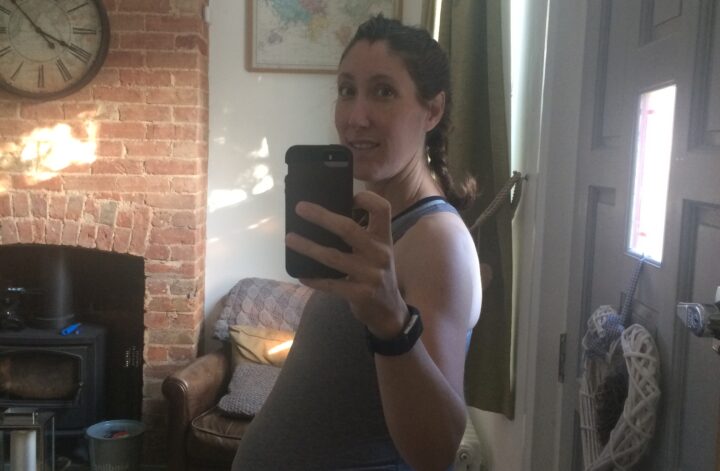Exercising during the prenatal phase has many benefits. Some of there include:
- Reducing risks of hypertension (high blood pressure)
- Improves sleep and mood
- Reduces back pain and improves posture
- May reduce the risk of preeclampsia, gestational diabetes and cesarean delivery
- Mintaines general fitness and improves cardiovascular fitness
The Royal College of Obstetricians and Gynaecologists (RCOG), (2017) have produced a guide to outline the benefits of exercise in pregnancy which provides a great summary of what to follow when pregnant:

As long as your doctor has said it is ok to participate in exercise then you have nothing to worry about. You should continue with your exercise regime but will need to be mindful that exercises will need adapting as you progress throughout your pregnacy. The intensity of the exercises will need to be reduced as you progress. There are loads of great exercises you can continue to do throughout your whole pregnacy journey.
If you don’t have a regular exercise routine before being pregnant, it is still advised to start exercising but you need to make sure you start gently.
Top 10 exercises when pregnant
Exercises which are great when pregnant include:
- Walking and hiking
- Jogging (if you were running before hand)
- Aerobic classes
- Swimming
- Cycling
- Aquanatal classes
- Rowing
- Strength workouts
- Yoga/pilates
- Pelvic floor exercises
Some general prenatal exercise tips
You should stop rowing and cycling when there is a risk of bumping the baby bump.
With yoga, pilates and stretching in general, you should be careful not to over stretch, avoiding hyperextension and soft tissue tears which are more likely to happen due to a hormone called relaxin. Relaxin is a hormone produced during pregnacy which allows the ligaments in the pelvis to relax. It also softens and widens the cervix.
You should stop exercise if you feel dizzy, sick, faint or have any pains anywhere. If these symptons don’t go away after stopping exercise you should seek medical attention.
If you don’t already own one, I would recommend getting a watch that lets you see what your heart rate is. Depending on your level of fitness, you want to keep your heart rate below a certain level to avoid feeling totally exhausted. This may be 140bpm or 160bpm as I said, this totally depends on your fitness level before pregnancy. An easy way to find you maximum heart rate is:
maximum heart rate = (220 – your age)*0.85
eg (220-35)*0.85 = ~157
Tthis should give you roughly your maximum heart rate whilst exercising before you are pregnant.
If you have a high risk pregnancy please consult with your doctor before participating in exercise. Only continue to exercise if you know or think that your pregnancy is normal.
Check for prenatal classes near you. Online fitness classes are now available too but make sure the trainer is aware at what stage of pregnancy you are at so they can adapt the exercises accordingly.
I will post some more specific exercises to do, especially some strength exercises which are great to do when pregnant so check back soon…..




